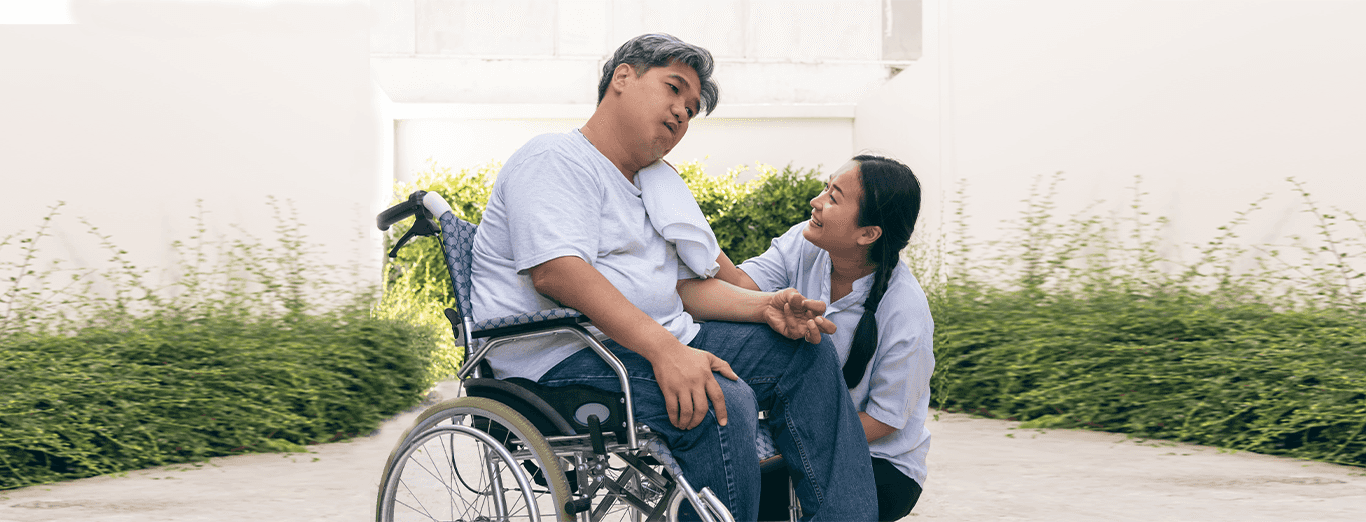
Skilled Nursing, Right at Your Doorstep
Our certified nurses provide professional medical care in the comfort of your home, ensuring you receive hospital-quality treatment without the stress of travel
Comprehensive Care Plans
From post-operative care to chronic condition management, our nursing services are tailored to meet your specific health needs, promoting faster recovery and better outcomes
Trusted Professionals, Compassionate Support
With rigorous training and background checks, our nurses are not only skilled but also empathetic, offering both medical expertise and emotional support
Patient Testimonials
factors that affect paralysis recovery time
Physiotherapy treatment is mostly based on the entire body right from the treatment of the condition from the left body side to the right body side and not merely the affected leg or arm. A great deal of time is spent at the beginning in finding an accurate position of the limbs and the body whilst the individual is confined to the chair or the bed. Every time the individual has to be shifted, whether it is just to turn him/her in their bed or help transfer them from their bed to a nearby chair or to aid with any other movement form, it must be done according to a cautiously worked out pattern. The limbs must be placed in the appropriate position every time the individual is moved.
There is actually no preset paralysis recovery time that an individual will take to recuperate from this medical condition. The brain cells that got severely damaged at the start of the attack die and do not recover. But, other cells that got partially damaged, as a result of swelling of the brain, will recover and begin working again. This process happens during the initial few weeks subsequent to the patient suffering a stroke.
Stroke paralysis recovery time will vary from one person to another. The brain parts which are unaltered by the stroke start to take over the dead parts’ functions. This can happen only to a restricted extent however it might continue for some time. The individual will be capable of adapting to the function loss and will start learning new ways of living with the injured brain as therapy advances.
Paralysis recovery time after stroke can be anywhere between 3-4 months, but some people have continued to recuperate well into their 1St and 2nd year.
here are some factors that may affect the paralysis attack recovery time.
- The root cause that triggered the attack.
- The patient’s age.
- The general health of the individual.
- The paralysis type that the individual suffers from.
- The consistency that the individual follows throughout the treatment program.
paralysis types
The kind of paralysis that an individual suffers from will rely on the injury type or cause that instigated the paralytic attack in the first place. There are 5 types of paraplegia. The doctor will examine the overall condition of the person and recommend the appropriate treatment approach type.
Quadriplegia
- This paralysis type involves all four limbs and the main body.
- This paralysis happens when an individual gets injured in the spinal cord on top of the thoracic vertebra (the sections in the upper spine area). In some individuals, quadriplegia can take the tetraplegia form, wherein the patient will lose any kind of movement and sensation in 3 limbs.
Diplegia
- This type of paralysis involves losing the moving ability in both legs.
- It occurs when an individual experiences an injury under the thoracic vertebra.
- The majority of people who are restricted to a wheelchair after enduring a paralytic attack also have paraplegia.
Monoplegia
- This paralysis type involves the patient losing the movement ability in one limb.
- This happens when the individual experiences a spinal injury wherein there’s damage to the localized peripheral nervous system areas [the portion of your nervous system that has the nerves outside the spinal cord and brain].
- It can occur due to damage to related areas in your motor cortex [the portion that is engaged in the procedure of helping an individual control, plan and execute numerous voluntary movements].
Paraparesis
- When this paralysis type occurs, the individual will lose sensation and movement ability in symmetrical parts of the body; [both sides of their face or both their arms].
- The face and arms are the two most common body areas that are involved in this case. This can also occur when the individual experiences any injury type to their spinal cord.
Hemiplegia
- This paralysis type involves the individual losing movement ability and sensation on one side of their body.
- So, there won’t be any movement ability or sensation in that area on the entire side. This occurs when an individual experiences a stroke that affects one part of the brain.
The physiotherapists at Portea help heal patients in the luxury of their homes. They assess, identify and develop a treatment plan that differs depending on your needs. A general physiotherapy session is typically half an hour, depending on the severity of the problem.
Doctor Consultation
Nursing
Physiotherapy
Trained Attendant
Elder Care
Mother & Baby Care
Lab Tests
Medical Equipment
Speciality Pharma
Critical Care





